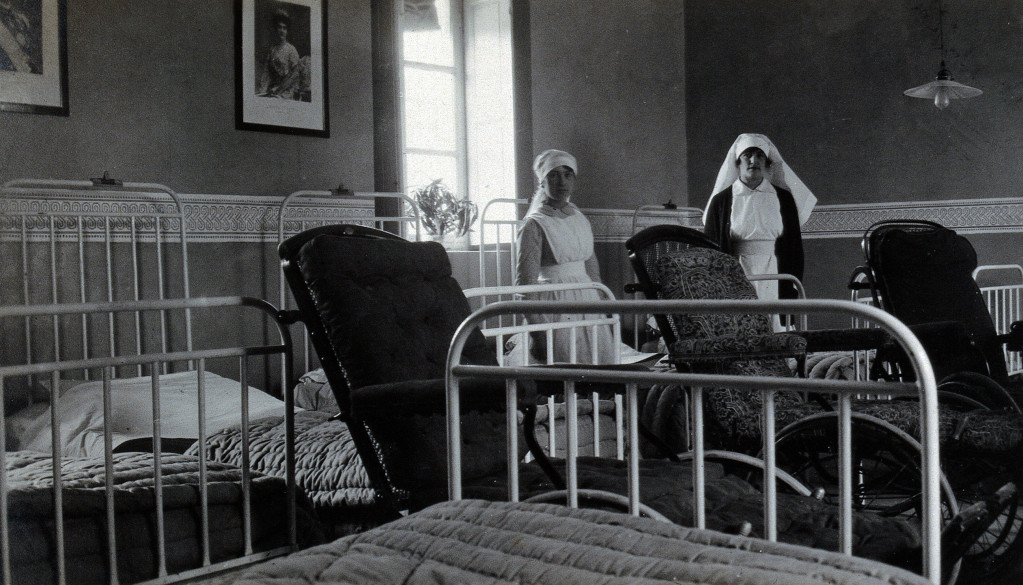Remembrance Sunday: 100 Years on | Remembering the nurses and volunteers who risked everything
Friday, November 9th, 2018 | Uncategorized
“On the 11th hour of the 11th day we will remember them.”
A quote that signifies not only the day and time that we remember those who made the ultimate sacrifice during World War One, but it also marks the end of the first world war. Recorded as one of the deadliest wars of all time, 37 million military and civilian lives were lost across the world, and many more were permanently changed forever.
Amongst those who were involved in the four year conflict were a large number of nurses and Voluntary Aid Detachments (VADs). They provided medical support in their own countries and across the theatre of war, and their help and support played a pivotal role in reducing casualties and boosting morale.
Nurses and volunteers provided support close to the front-lines and in makeshift military hospitals. These hospitals were usually set up in any building that could accomodate the number of people, as the volume of injuries was always incredibly high. In France, large chateaus were set up as makeshift hospitals and injured soldiers would line the hallways and fill the rooms.
Nurses and VADs would work long shifts across a six-and-a-half-day week, often working for 14 hours or more at a time. Nurses performed many of the important medical tasks such as cleaning and dressing wounds or assisting with surgeries. VADS - similar in nature to healthcare assistants - took care of patient’s sanitary needs, maintained the hospital facilities and helped with other vital tasks.
Infections as a result of shrapnel or bullet wounds were common, but antibiotics would not be discovered until some ten years later. Nurses played an important role in fighting infection, as their continued application of antiseptic and dutiful commitment to cleaning wounds saved a lot of soldiers from amputations or death. Initially hesitant to place nurses near the front line, many officials realised the benefits of first-aid at the point of injury and started integrating nurses and VADs near the front line.
The role - and importance - of nurses and VADs changed quickly throughout World War 1. Initially kept away from the front-lines, nurses and VADs quickly showed they were capable of more than providing support and care from afar. Prior to the first world war, anyone was able to identify as a nurse. Just the act of caring for others was often associated as nursing, when in reality nursing had developed at the time to require a very specific and valuable skill set.
Those nurses and VADs that risked everything to support those at war, changed everything for nurses, going forward. In 1919 the Nurse Registration Act passed in British parliament, this meant that trained nurses had to register in order to deliver care. The passing of this act signified a change in public attitude towards the profession, something that had been swayed by the resolve and dedication shown by the nurses and VADS that risked everything.

















